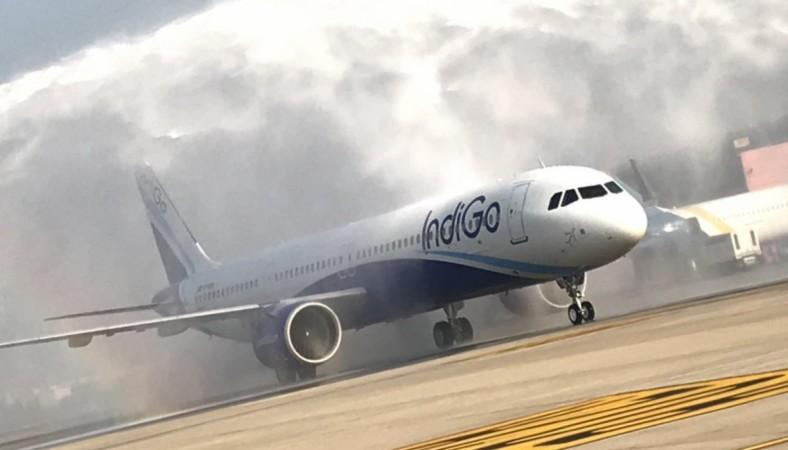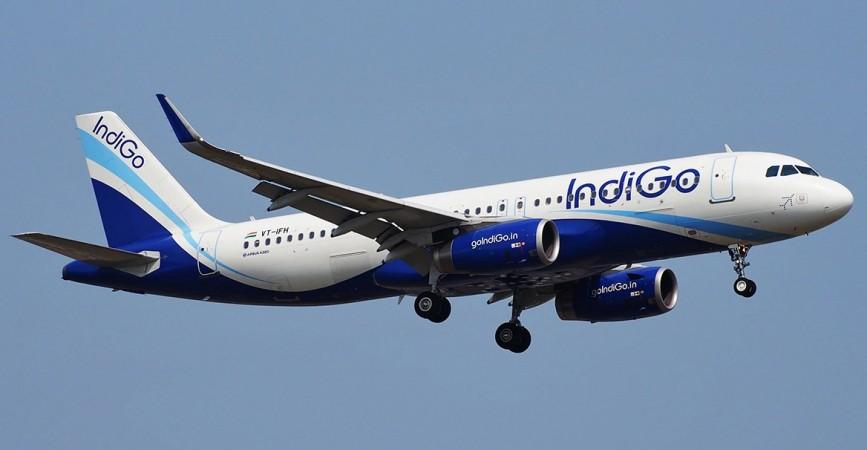COVID-19 pandemic took a toll on the global economy, and the airlines industry was among the worst-hit industries. At a time when major airlines are struggling to keep their balance sheets in check, airline major IndiGo has found itself on a growth trajectory that is now gauged on a global level. UK's air consultancy firm OAG has released a report, in which IndiGo has emerged as the tenth largest airline globally and largest in Asia Pacific by seat volume.
OAG's report on "essential metrics on the world's major airlines" compared the capacity of airlines between summer of 2019 with this year. It says, the airline major had 3.7 crore deployed seat capacity, making it rank in the global top 10.
Top airlines and their seat capacity
- Southwest Airlines: 10.8 crore
- American Airlines: 9.6 crore
- Delta Airlines: 8.8 crore
- China Southern Airlines: 7.9 crore
- China Eastern: 7.2 crore
- United Airlines: 6 crore
- Air China: 4.9 crore
IndiGo "is operating at almost three-quarters of summer 2019 levels in capacity terms and is currently the largest airline globally. Although predominantly a domestic airline, 9% of IndiGo's summer '19 capacity operated international airline capacity is only operating at 37% of summer 2019 levels," the report said.
![Sky is the limit: IndiGo is now tenth largest airline by capacity globally; growth indisputable [details]](https://data1.ibtimes.co.in/en/full/767454/sky-limit-indigo-now-tenth-largest-airline-by-capacity-globally-growth-indisputable-details.jpg?h=450&l=50&t=40)
The report added that IndiGo operated 73 percent of its overall seat capacity this summer over the same period in 2019.
IndiGo's dominance in India
IndiGo's massive fleet size, as well as expansive routes, are expected to protect its huge domestic market share. With a 58 per cent domestic market share, the airline ferries around 6 out of every 10 domestic passengers, a recent IANS analysis report revealed.
IndiGo has a fleet size of 275 aircrafts that operate over 1,400 flights daily. It's almost as good as the pre-pandemic level, wherein the airlines clocked 1,600 daily flights.
![Sky is the limit: IndiGo is now tenth largest airline by capacity globally; growth indisputable [details]](https://data1.ibtimes.co.in/en/full/767455/sky-limit-indigo-now-tenth-largest-airline-by-capacity-globally-growth-indisputable-details.jpg?h=450&l=50&t=40)
"Clearly, IndiGo has built a dominant position in the domestic airline market over the last few years and in the pre-pandemic period, it was the only airline in India which demonstrated the ability to generate a healthy level of profits," Acuite Ratings and Research Ltd Chief Analytical Officer Suman Chowdhury said.
Echoing Chowdhury's viewpoint, Brickwork Ratings' Senior Director, Ratings and Head, Infrastructure Ratings Vipula Sharma said: "Post pandemic, the airline recovery has been erratic. Indigo, with its relatively stronger finances will retain its market share in the medium term while the other players rebuild their operations."
Resuming normalcy mid-air
IndiGo is seen making strides in terms of bringing normalcy back to air travel. Last week, the airline resumed meals on-board service for flights of less than 2 hours of duration. Since April 15 due to the Covid-19 pandemic, air carriers were not allowed to serve in-flight meals, which were less than two hours of duration.

IndiGo's commitment towards regional connectivity is unwavering. Earlier this month, IndiGo launched new direct flights between Bhubaneshwar and Jaipur. Also, the airline major had said that it will commence 12 new flights this month.
At present, IndiGo has a fleet of more than 275 aircraft and operates over 1,400 daily flights, connecting 71 domestic and 24 international destinations.
Ready to take on competition
IndiGo has drawn 'clear' defensive strategies as the sector is expected to become more competitive, the airline's top executive had said earlier this month. IndiGo Wholetime Director and CEO Ronojoy Dutta also acknowledged that the competitive landscape is going to get much more intense and the airlines already has three distinct lines of defence to ward-off competition.
"Our first line of defence is that we have the lowest cost structure in the world. Besides, our engines are getting more fuel-efficient. Then, there is our service standard and the third is our traction with the customers in terms of our network. Build a great network, build great connectivity and make sure you have high (on-time) frequencies between major destinations," Dutta said.

Dutta also said that apart from connecting the smaller towns, the airline is entering code-share agreements to shore-up its international network. In aviation parlance, a code-share agreement allows airlines to sell seats on each others' flights in order to provide passengers with a wider choice of destinations.
"Internationally, code-shares are important. We have code-share agreements with Qatar Airways and Turkish Airlines. We are looking to add more," he said. On those lines, IndiGo recently entered into a code-share agreement with the US-based American Airlines.










